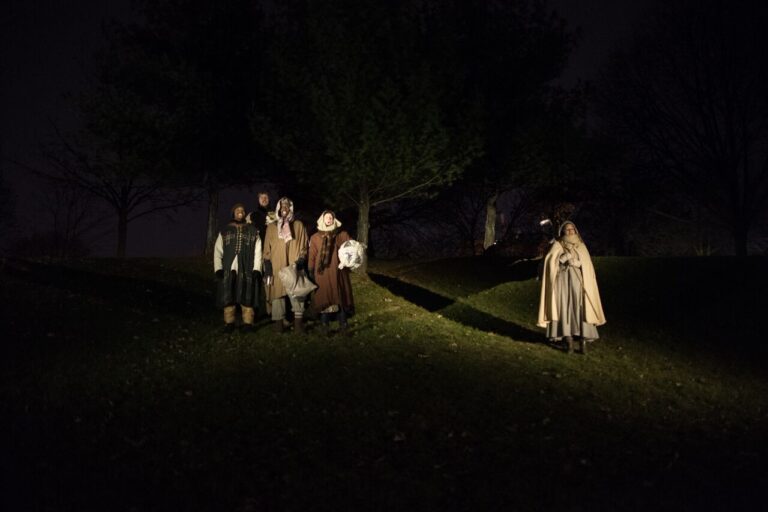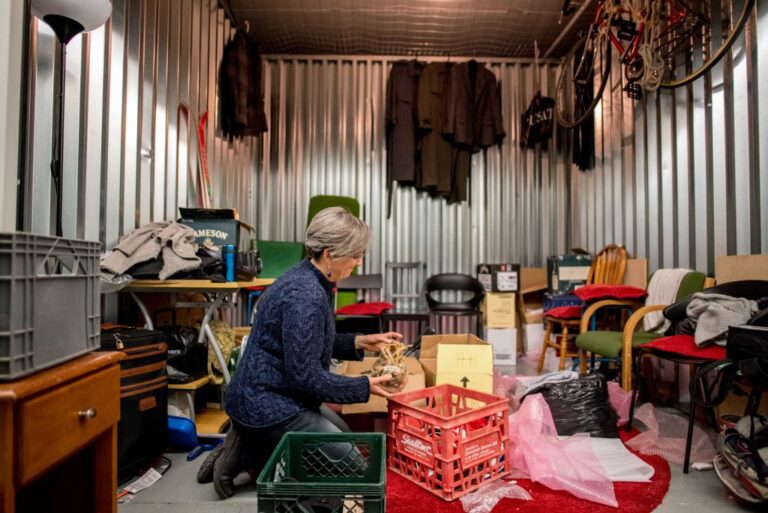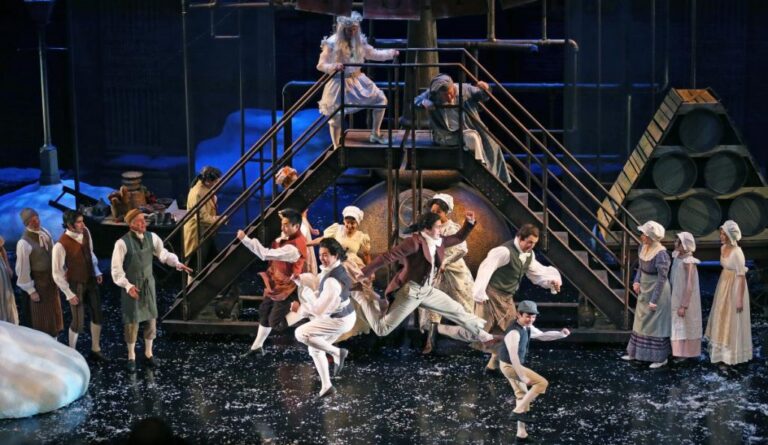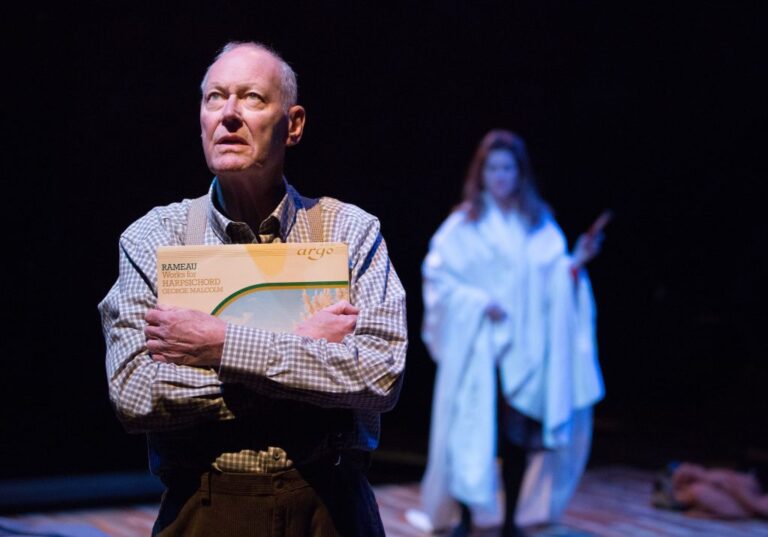Review: My Name is Asher Lev
My Name is Asher Lev
Studio 180 Theatre/Harold Green Jewish Theatre
By Aaron Posner, adapted from the novel by Chaim Potok. Directed by Joel Greenberg. At Toronto Centre for the Arts. Runs until November 26.
Asher Lev (Jonas Chernick) is an observant Hassidic Jew who is also a celebrated artist, painting crucifix scenes and nude women. How he reconciles these two disparate lives, under the shadow of his devout parents, is the struggle at the heart of My Name is Asher Lev.
Throughout the play, Asher constantly spars with his straight-laced, rigid-thinking father (Ron Lea). His mother (Sarah Orenstein) spends most of her time trying to calm the two men and keep them from fighting. As with any good artist, Asher is watchful and sensitive to what this fighting was doing to the family. In one soul-crushing scene, Asher says that in his Jewish tradition there was nothing into which he could pour his anguish. And so he created a painting that depicted that pain. It was devastating, especially to his parents.
Longing, yearning, and giving into obsession drive the story. Director Joel Greenberg guides this production with a sure hand, and it crackles with explosive emotion. Chernick as Asher is consistently firm, committed to standing his ground, whether as a precocious six-year-old, a ten-year-old, or a teenager. Chernick almost slumps when his father berates him. When his mentor compliments his work, he straightens subtly, though his newfound confidence is unmistakable.
Asher addresses the audience in many scenes, standing apart from his family. Greenberg emphasises Asher’s separateness from his family in those scenes. In a sense Asher is in two worlds: the traditional devout world and the art world. One wonders if he is equally comfortable in both.
Lea and Orenstein both play various parts. Lea is Asher’s father, uncle, and art mentor, as well as the Rabbi, and he portrays each with a distinct physicality and emotional life. As the father, Lea creates a man frustrated with his son, demanding he follow the well-ordered religious life, and his son not falling into line.
Orenstein is Asher’s devoted mother, a sophisticated art dealer, and a young model who poses nude for Asher. As Asher’s mother, Orenstein is loving and appreciative of Asher’s art, but is concerned when it veers into the troubling area of explicitly Christian imagery. In one scene, Orenstein is buoyant, full-faced and embracing of Asher. In another when his mother is mourning the death of her brother, she has shifted into a sunken-cheeked, haunted woman who looks like the life has slipped out of her. Lovely work here.
Aaron Posner has taken Chaim Potok’s novel and created a play that illuminates the confined, ordered life of a devout Jew and the wonder and curiosity of an artist whose life has exploded open. The production builds on that beautifully.
For tickets or more information, click here.
To read about how Jonas Chernick connected with his character, the prodigy Asher Lev, click here.














Comments